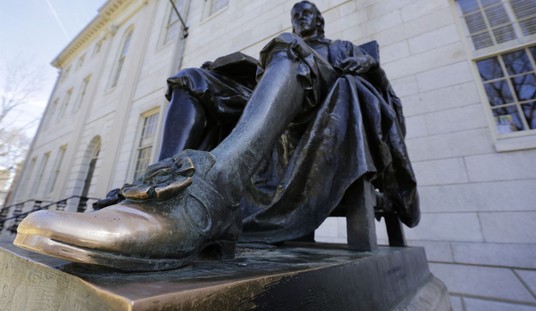
When Edward Schumacher-Matos signed to serve as the NPR Ombudsman he probably forgot his hip-boots. He was blissfully unaware that his job description would include a thorough mucking of the Augean Stables. When NPR reporter Laura Sullivan ran a series that accused the state of South Dakota of removing Native American children from reservation homes and farming them out to wealthy Caucasian foster parents to collect federal subsidies for the adoption, he knew that he had stepped into a bear-trap of a professional assignment.
Schumacher-Matos took Sullivan apart and NPR to task. He detailed five fundamental professional ethics violations that occurred in the reporting of the story. He gets straight to the point below.
The series committed five sins that violate NPR’s code of standards and ethics. They were:
1. No proof for its main allegations of wrongdoing;
2. Unfair tone in communicating these unproven allegations;
3. Factual errors, shaky anecdotes and misleading use of data by quietly switching what was being measured;
4. Incomplete reporting and lack of critical context;
5. No response from the state on many key points.
This “reporting” could be described more accurately as conflating what were legitimate historical injustices perpetrated against Native American Tribes during the conquest of The American West into a sickening form of blood libel. This is why I entitled the post “The Protocols of The Elders of South Dakota.” NPR seems to take every bad thing that was ever done to Native American children historically and shifts it 30 to 100 years forward without first investigating whether these awful charges remain true.
What actually happens here is a collision between Post-modern Liberal America and the traditional culture of Native American Tribesmen. These people want to operate their families the way they always have in the past and are being slammed for running afoul of what The State considers good child-rearing practices. Sullivan reports this below.
But according to state figures, less than 12 percent of the children in foster care in South Dakota have been actually physically or sexually abused. That’s less than the national average. And yet South Dakota is removing children at almost three times the rate of other states, according to the National Coalition for Child Protection Reform. To understand how that’s possible, how the state can remove Janice Howe’s four grandchildren and more than 700 other Native kids every year, you have to understand one word: neglect. The state says parents have neglected their children, and neglect is subjective.
According to Ombudsman, Schumacher-Matos, Sullivan’s reporting suffers from statistical prestidigitation designed to make the South Dakota Child Protective agency look worse than anyone else in America. For starters, the National Coalition For Child Protection Reform (cited heavily by NPR) claims that lack of due process in child removals is a national problem. Child removal nationwide is inversely correlated with family wealth. Poor families get their children removed far more frequently than Rockefellers. Native Americans suffer the worst poverty rate amongst all American races for whom statistics are kept.
This doesn’t disprove the existence of any racism in how Native American children are handled by the State of South Dakota. But it does present a logical null hypothesis that must be professionally debunked before statistical data can be used to make the State of South Dakota out to be villainous. This never happens. No experiment is ever run to separate ethnicity from poverty in how child removals get ordered by The State of South Dakota.
The most sickening aspect of the Sullivan series on Native American child removals centers on the accusation that this all being run as a scam for the state government to get more money. Here NPR descends to the level of an edition of The Final Call “proving” the CIA invented Crack Cocaine. Sullivan points that South Dakota is incentivized to remove children by the Federal Government.
State officials say they’re doing everything they can to keep native families together. Poverty, crime and alcoholism are all real problems on South Dakota’s reservations and in the state’s poorest areas. But, state records show there’s another powerful force at work — money. The federal government sends the state thousands of dollars for every child it takes. When Sullivan later returns to develop the point in the radio version, she begins:
Most social workers care deeply about the children they work with, and few would voluntarily take on more cases. But a close review of South Dakota’s budget shows there’s a financial incentive at work. Every time a state puts a child in foster care, the federal government sends money. Because South Dakota is poor, it sends lots of money — almost $100 million a year.
Ombudsman Schumacher-Matos investigates whether or not South Dakota financially “kills it” by yanking people’s kids for profit. He discovers the following:
According to Kim Malsam-Rysdon, the head of South Dakota’s Department of Social Services, South Dakota in 2010 received $11,344 per child, less than half the national average of $25,019. This is for a child of any race.
But anytime you subsidize something you get a lot more. The Federal government subsidized the placement of children in foster families and then the number took off. From 1986 to 1995, the number of children across America in foster homes doubled. What never gets explained by NPR is whether the State of South Dakota (or every other state in the US) took more kids out of what were deemed marginal or poor homes to get more money. It may have been that they intended or would have taken these kids out of their homes the second they got the money. What never gets flushed out is whether the standards by which a child could or should be removed from a home got changed to take advantage of the Federal money. Without that important philosophical lynchpin, NPR is throwing around vile accusations that are literally baseless.
Finally, there are the questions that NPR’s “Protocols of The Elders of South Dakota” reporting never even addresses. Are Native American child seizures more likely to occur without due process or is every American family threatened with the violation of their rights if Child Protective Services chooses to act against them? Does South Dakota milk this subsidy or do Alabama, Georgia and Vermont milk this particular cow as well? Remember, South Dakota makes a lot less off the deal per child than the national average. Oh and why is the Federal Government subsidizing child removals? Did they ever consider the mordant possibility that they could be getting into the business of state-subsidized kidnapping this way?
That, in my humble opinion, should have been where this particular investigation went. Instead, NPR went hunting for The Great, White Scapegoat for all that is wrong in America. They should look in the mirror instead. Because they won’t look into the mirror, the blogosphere exists and grows while The Washington Post gets all but sold on E-Bay. Because they won’t ask the necessary questions needed to ascertain decent truth, an entire new citizen media has arisen to do it for them.














Join the conversation as a VIP Member